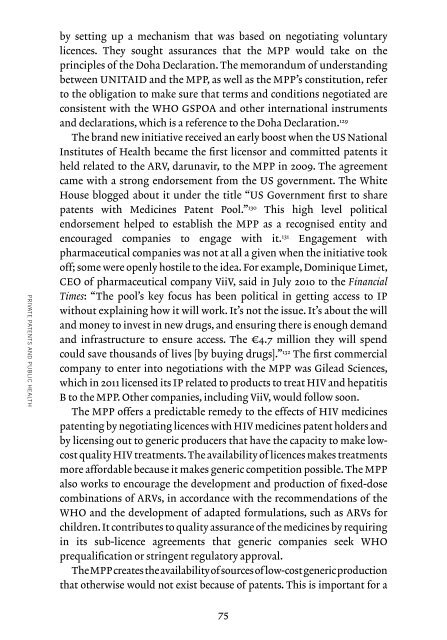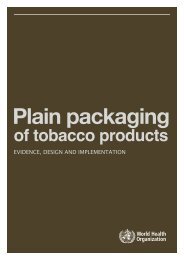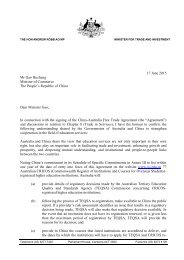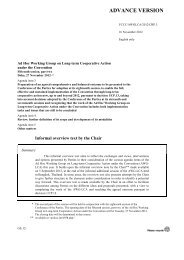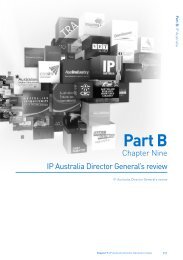PRIVATE PATENTS AND PUBLIC HEALTH
private-patents-and-public-health
private-patents-and-public-health
Create successful ePaper yourself
Turn your PDF publications into a flip-book with our unique Google optimized e-Paper software.
<strong>PRIVATE</strong> <strong>PATENTS</strong> <strong>AND</strong> <strong>PUBLIC</strong> <strong>HEALTH</strong><br />
by setting up a mechanism that was based on negotiating voluntary<br />
licences. They sought assurances that the MPP would take on the<br />
principles of the Doha Declaration. The memorandum of understanding<br />
between UNITAID and the MPP, as well as the MPP’s constitution, refer<br />
to the obligation to make sure that terms and conditions negotiated are<br />
consistent with the WHO GSPOA and other international instruments<br />
and declarations, which is a reference to the Doha Declaration. 129<br />
The brand new initiative received an early boost when the US National<br />
Institutes of Health became the first licensor and committed patents it<br />
held related to the ARV, darunavir, to the MPP in 2009. The agreement<br />
came with a strong endorsement from the US government. The White<br />
House blogged about it under the title “US Government first to share<br />
patents with Medicines Patent Pool.” 130 This high level political<br />
endorsement helped to establish the MPP as a recognised entity and<br />
encouraged companies to engage with it. 131 Engagement with<br />
pharmaceutical companies was not at all a given when the initiative took<br />
off; some were openly hostile to the idea. For example, Dominique Limet,<br />
CEO of pharmaceutical company ViiV, said in July 2010 to the Financial<br />
Times: “The pool’s key focus has been political in getting access to IP<br />
without explaining how it will work. It’s not the issue. It’s about the will<br />
and money to invest in new drugs, and ensuring there is enough demand<br />
and infrastructure to ensure access. The €4.7 million they will spend<br />
could save thousands of lives [by buying drugs].” 132 The first commercial<br />
company to enter into negotiations with the MPP was Gilead Sciences,<br />
which in 2011 licensed its IP related to products to treat HIV and hepatitis<br />
B to the MPP. Other companies, including ViiV, would follow soon.<br />
The MPP offers a predictable remedy to the effects of HIV medicines<br />
patenting by negotiating licences with HIV medicines patent holders and<br />
by licensing out to generic producers that have the capacity to make lowcost<br />
quality HIV treatments. The availability of licences makes treatments<br />
more affordable because it makes generic competition possible. The MPP<br />
also works to encourage the development and production of fixed-dose<br />
combinations of ARVs, in accordance with the recommendations of the<br />
WHO and the development of adapted formulations, such as ARVs for<br />
children. It contributes to quality assurance of the medicines by requiring<br />
in its sub-licence agreements that generic companies seek WHO<br />
prequalification or stringent regulatory approval.<br />
The MPP creates the availability of sources of low-cost generic production<br />
that otherwise would not exist because of patents. This is important for a<br />
75


